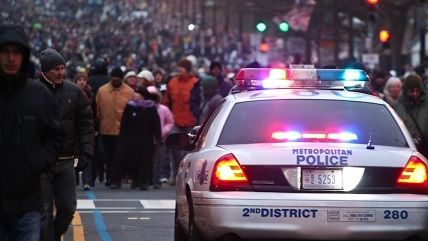Boosting Police Transparency in California
Last serious effort nine years ago was crushed by police lobbying, but times are different

One of the most depressing legislative hearings in California I've ever attended took place in 2007 in the Assembly Public Safety Committee, as legislators considered a fairly modest bill that would have allowed the public release of information about alleged police misbehavior. The fix was in before the hearing even started.
Police lobbyists and union officials were given reserved seats at the front. As I reported at the time, some onlookers in attendance openly mocked the people who showed up to support the transparency bill. The committee chairman gave a rambling chat defending police.
Republicans joined Democrats in refusing to allow a vote—and the bill died without any ayes or nays recorded that day. The bill, SB 1019, was designed to mostly overturn a 2006 decision in Copley Press v. Superior Court. In that California Supreme Court case, this newspaper sought access to the disciplinary proceedings in which a San Diego County deputy sheriff was appealing his removal from the force.
In finding the hearings to be closed, the court shut down public access to information about law-enforcement officials accused of misbehavior. Police organizations have celebrated the subsequent privacy rights they gained. Critics believe such official secrecy has exacerbated a growing lack of trust in law enforcement—the fruits of which we've seen in public protests about shootings and other incidents over the last several years.
After all, the public can no longer easily learn whether, say, an officer who shot to death a suspect has been involved in previous shootings—or whether he or she has been repeatedly accused of using excessive force or involved in misconduct. It has taken nine years, but state Sen. Mark Leno, D-San Francisco, is back with a new version of a police accountability bill. It wouldn't just overturn Copley, but SB 1286 would give the public a better chance to learn about officers credibly accused of misbehavior.
The bill would allow local governments to hold these disciplinary hearings publicly. It would give the public access to records of allegations of past misbehavior that was sustained after an internal investigation was conducted. Record requirements would apply to use-of-force incidents, any alleged violations of citizens's rights or allegations of on-the-job dishonesty. Public agencies would be able to access a broader range of confidential records.
Members of the public who file complaints about an officer would finally have the right to learn about the status of their complaint. At a press conference in San Francisco last week, the city's district attorney, George Gascón, said "California is among a minority of states that makes police records confidential," which he believes "has a detrimental effect on our public safety."
That's a common theme from supporters. "So much has gone on to distort the community's trust in policing," said Jim Ewert, general counsel of the California Newspaper Publishers Association. "The good work that 99 percent of police officers are doing is tainted by the bad behavior of the 1 percent because the bad cops are allowed to operate in secret."
The bill may face tough going. Last session, several meaningful bills dealing with police behavior received initial support, only to be crushed in ways similar to what took place in that Assembly committee. In one instance, opponents derailed legislation to promote the use of body cameras by officers after legislators and lobbyists hijacked it and rewrote it to give police the right to review the video before filing their reports.
Last year, police lobbies killed a bill to require agencies to follow California's asset-forfeiture law and gain a conviction before taking people's homes, cars and personal property. Currently, police agencies often circumvent state law by partnering with federal agencies and then splitting the loot. That lets them conform to the much-less stringent federal standards, which allow property to be taken from those never convicted or even accused of a crime.
Supporters of the transparency bill say that the current climate is much different from 2007 and that even those asset-forfeiture and body camera bills may have better chances this year than last year.
The big question is whether—following the national backlash after some prominent police use-of-force incidents—legislators from both parties sense enough of a shift in opinion to take on some of the Capitol's most-powerful interest groups. I'd guess the bill's findings would be widely supported by most Californians:
"To empower peace officers to fulfill their mission, the people of California vest them with extraordinary authority… Concealing crucial public safety matters such as officer violations of civilians' rights, or inquiries into deadly use of force incidents, undercuts the public's faith in the legitimacy of law enforcement… The public has a strong, compelling interest in law enforcement transparency because it is essential to having a just and democratic society."
We'll soon see if such high-brow ideas can withstand the more low-brow art of lobbying.


Show Comments (19)